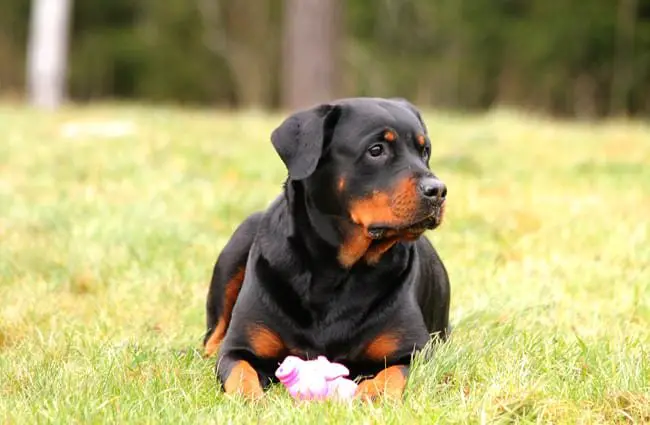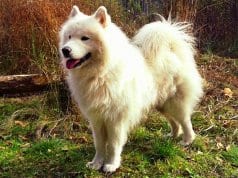A Comprehensive Look at the Rottweiler
The Rottweiler, a breed instantly recognizable for its powerful build and confident demeanor, holds a fascinating place in both canine history and modern society. More than just a strong physique, the Rottweiler boasts a complex heritage, intriguing behaviors, and a surprising adaptability. This article delves into the world of the Rottweiler, exploring its origins, characteristics, behavior, and its place in the natural world and human culture.

Origins and Evolution
The Rottweiler’s story begins in Germany, with some historians suggesting a link to Roman war dogs used for herding and guarding. While the connection is not definitively proven, these early dogs were robust and capable of independent thought, essential for managing large herds. As the Roman Empire receded, local herding dogs in the region of Rottweil began to develop the traits that would later define the breed.
The breed truly began to solidify in the town of Rottweil, which is why it carries the name. During the Middle Ages, Rottweilers were indispensable for driving cattle to market, pulling carts laden with meat and other goods. Their strength and endurance made them ideal for these demanding tasks. By the late 19th century, industrialization reduced the need for drover dogs, and the Rottweiler faced near extinction. Dedicated breeders stepped in to preserve the breed, recognizing its potential beyond its working role. These breeders focused on refining the temperament and physical attributes that have made the Rottweiler the companion we know today.
Physical Characteristics and Adaptations
The Rottweiler is a large breed, typically weighing between 80 and 135 pounds, with males generally larger than females. Their muscular build, broad chest, and powerful jaws are testaments to their working heritage. The iconic black and tan markings are produced by specific genes that control pigment distribution. These markings provide a subtle camouflage in forested environments and help with identification.
Their coat is short, dense, and easy to maintain, offering protection against the elements. The Rottweiler’s paws are exceptionally strong and well-padded, enabling them to traverse a variety of terrains. Their keen sense of smell and hearing further contribute to their versatility as both working dogs and watchful companions.

Habitat and Distribution
Historically, the Rottweiler’s habitat was primarily the countryside of southwestern Germany, where they worked alongside farmers and butchers. Today, the Rottweiler is a cosmopolitan breed found in homes around the globe. They are adaptable to various climates, though they prefer moderate temperatures. While they can tolerate colder weather due to their dense coat, they are prone to overheating in hot climates.
Because of domestication, Rottweilers no longer have a wild habitat and rely entirely on humans for survival. Their natural instincts for guarding and patrolling remain visible, even in domestic settings. They are commonly found in suburban and rural areas where they have space to roam, but they can adapt to apartment living with adequate exercise.
Diet and Nutrition
As a large, active breed, Rottweilers require a diet rich in protein and essential nutrients. Historically, their diet consisted of meat scraps, bones, and vegetables obtained from farms and butcher shops. Modern Rottweilers thrive on high‑quality commercial dog food formulated for large breeds. A balanced diet should contain about 25 to 30 percent protein, 15 to 20 percent fat, and a moderate amount of carbohydrates.
Puppies need a growth‑specific diet with higher protein to support muscle development. Adult Rottweilers benefit from a diet that maintains lean muscle mass and supports joint health. Avoiding overfeeding is crucial, as Rottweilers are prone to hip and elbow dysplasia. Regular monitoring of weight and body condition is essential. Supplements such as glucosamine and chondroitin can further support joint health.

Reproduction and Life Cycle
Rottweilers typically reach sexual maturity between 18 and 24 months. The gestation period is about 63 days, and litter sizes range from 6 to 12 puppies. Rottweiler puppies are born blind and deaf, relying entirely on their mother for care.
The first few weeks of life are critical for development. Puppies open their eyes and ears around two to three weeks old and are weaned from their mother’s milk around six to eight weeks. Early socialization is crucial for developing a well‑adjusted temperament. Rottweilers have an average lifespan of 8 to 10 years. Responsible breeding practices help minimize genetic health problems.
Behavior and Social Structure
Rottweilers are known for their confidence, courage, and loyalty. They are naturally protective of their families and can be wary of strangers. Early socialization and training are essential for developing a well‑adjusted temperament. Their intelligence and eagerness to please make them relatively easy to train, though they require a firm and consistent approach.
They thrive when given a job, whether it’s guarding a home, participating in dog sports, or simply accompanying their owners on walks. Rottweilers can become dominant toward other dogs, especially those of the same sex. Proper socialization helps them learn to interact peacefully with other animals. While generally good with children, Rottweilers should always be supervised when interacting with young kids.

Rottweilers and the Ecosystem
As fully domesticated animals, Rottweilers have limited direct impact on natural ecosystems. Their presence can influence local wildlife behavior, especially in areas where they roam freely. They may prey on small animals such as rodents and rabbits, but this impact is usually minimal.
More significantly, responsible ownership contributes to overall pet welfare and promotes humane animal care practices. Proper waste management and preventing roaming help maintain healthier environments. Their roles as service and therapy dogs also enhance human wellbeing, indirectly supporting a more sustainable lifestyle.
Interactions with Humans and Cultural Significance
Throughout history, Rottweilers have served humans in many roles: droving cattle, pulling carts, guarding property, and serving as police and military dogs. Their strength, intelligence, and loyalty have made them invaluable partners.
Today, Rottweilers are popular companion animals, service dogs, and participants in dog sports. They are often portrayed in popular culture as powerful and imposing figures, sometimes reinforcing negative stereotypes. Responsible owners are working to promote a more accurate and positive image of the breed. The Rottweiler’s cultural significance lies in its historical working role and its enduring reputation as a loyal and protective companion.

Expert Insights: Health Considerations
Rottweilers are prone to certain health problems, including hip and elbow dysplasia, osteosarcoma (bone cancer), bloat (gastric dilatation‑volvulus), and heart conditions. Responsible breeders screen their dogs for these conditions to minimize the risk of passing them on. Regular veterinary checkups are essential for early detection and treatment of health issues.
Zookeeping and Captive Care
While uncommon in zoos, a Rottweiler in captive care requires significant mental and physical stimulation. A large, secure enclosure is essential, along with opportunities for play, exploration, and social interaction. A structured enrichment program should include puzzle toys, scent work, and regular training sessions. Diet must be carefully monitored, and veterinary care should be provided by professionals experienced with large breeds. Avoid prolonged isolation and prioritize positive reinforcement training methods.
Encountering a Rottweiler in the Wild (or Roaming)
Although it is rare to encounter a truly wild Rottweiler, if you come across a roaming dog, remain calm. Avoid direct eye contact and do not approach. Speak in a calm, soothing voice and slowly back away. If the dog approaches you aggressively, stand your ground and use a firm voice to command it to “go home” or “stay.” If you are attacked, protect your face and neck. Report the incident to local animal control authorities.
The Rottweiler, with its rich history and distinctive traits, remains a compelling and impressive breed. Understanding its origins, behaviors, and needs is key to appreciating this powerful and loyal companion.






![Red Angus Closeup of a beautiful Red Angus cowPhoto by: U.S. Department of Agriculture [pubic domain]https://creativecommons.org/licenses/by/2.0/](https://animals.net/wp-content/uploads/2020/03/Red-Angus-4-100x75.jpg)

